Friday February 14, 2025
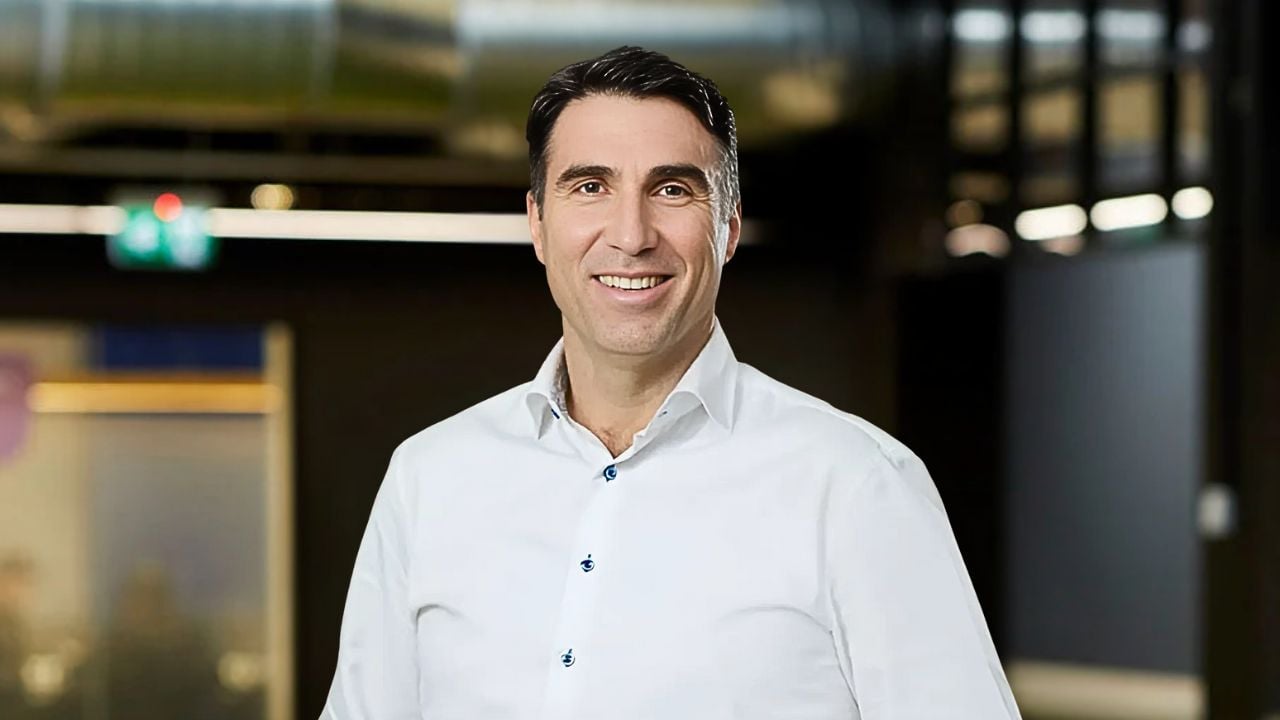
Former REA boss appointed interim CEO of Domain
Domain has announced the appointment of Greg Ellis as interim CEO, effective 17 February, while the company continues its search for a permanent leader. Ellis, who previously led REA Group from 2008 to 2014 and more recently served as CEO of MYOB until 2023, brings a wealth of experience to the role. He has been a member of Domain’s board since its spinout from Fairfax Media in 2017, making him well-acquainted with the company’s operations.
Ellis takes over from Jason Pellegrino, who announced in October he would step down after six years at the helm of Domain. Pellegrino, who played a pivotal role in evolving Domain from an online classifieds site to a comprehensive property marketplace, will officially finish his tenure on 28 February. During his final results briefing, Pellegrino highlighted several key achievements under his leadership, including a 14% rise in earnings and significant growth in high-value listings through products like Platinum Edge and Audience Boost.
For the six months to 31 December, Domain saw its earnings rise to $77.8 million, up 14% compared to the same period last year, with profits increasing by 28% to $33.1 million. These results were driven by an increase in site visits and adoption of new products, including an API management platform and growth in residential revenue.
Ellis, who will remain a director of Domain while acting as CEO, has committed to staying in the interim role for up to 12 months. This appointment comes at a pivotal time for the company as it continues to evolve its technology platforms and expand its market offerings.
Looking ahead, Ellis will oversee Domain’s efforts to continue investing in technology to enhance user experiences and improve operational efficiency, following in the footsteps of Pellegrino’s strategic focus on innovation and growth.
“We are progressing our investment into our technology platforms to accelerate the marketplace journey and broaden the range of ‘Only on Domain’ experiences available to our users,” Pellegrino said in his final results briefing.
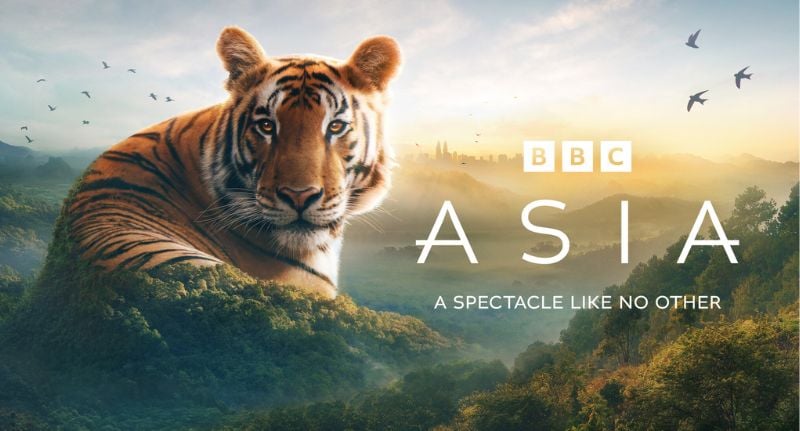
BBC Studios renews partnerships in AU and NZ with new Natural History titles
Ahead of BBC Studios Showcase Nine and TVNZ have expanded their partnerships with BBC Studios, securing fresh deals for its premium Natural History titles.
The multi-year agreements grant premiere rights to four major landmark series – Mammals, Asia, Kingdom, and Blue Planet III – bringing audiences across Australia and New Zealand breathtaking wildlife stories from every corner of the planet.
BBC Studios ANZ director of partnerships and content sales, Deborah Tod, said: “Our BBC Studios Natural History Unit is constantly innovating – pioneering new technology to push the boundaries of wildlife filming and bring audiences astounding new insights to our beautiful natural world.
These shows resonate around the world, are watched by millions of viewers on every continent, and have the power to drive conversation and change behaviour. I’m delighted to continue our long-standing natural history partnerships with Nine and TVNZ.”
The first series to air under these new deals is the critically acclaimed Mammals. In this series, Sir David Attenborough revisits the planet’s most successful animal group – two decades after Life of Mammals – to uncover the secrets behind their survival and how they’re adapting to a changing world. The series recently premiered on TVNZ.
Meanwhile, Asia marks the first-ever major BBC wildlife series dedicated to the world’s largest continent. Narrated by Sir David, it takes viewers on an epic journey through Asia’s diverse landscapes – from the vast Gobi Desert and Borneo’s jungles to Siberia’s frozen wilderness and the coral-rich Indian Ocean – showcasing the region’s most spectacular wildlife.
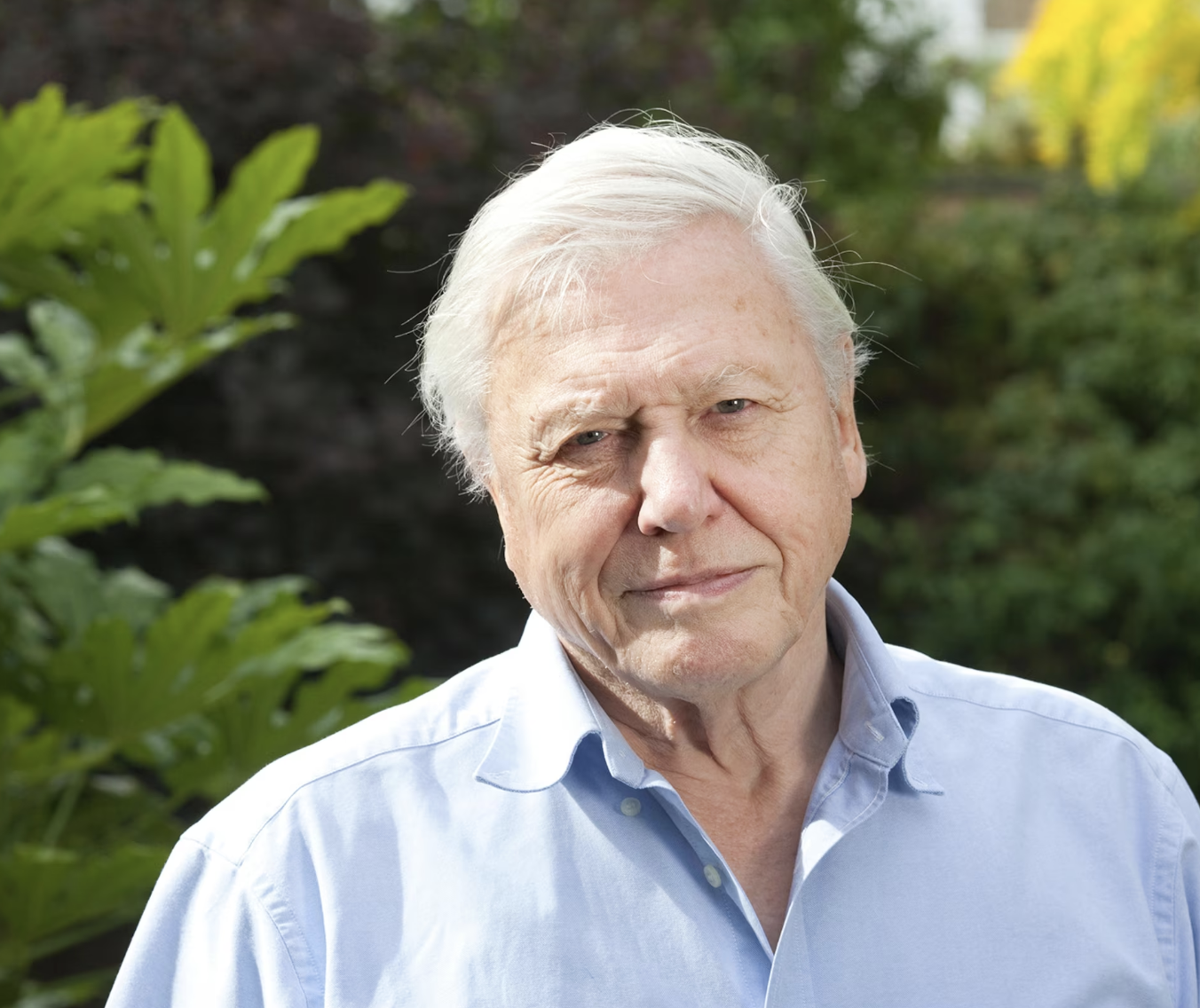
BBC’s natural history host (and UK national treasure) Sir David Attenborough.
Meanwhile, Kingdom is one of the most ambitious undertakings by BBC Studios’ Natural History Unit, filmed over four years in a single breathtaking location. The series follows the real-life power struggles of four African animal families – leopards, hyenas, wild dogs, and lions – as they fight for dominance in a remote, fertile Zambian river valley.
Audiences will witness how the fates of these rival groups are tightly intertwined, as they battle both external threats and internal power struggles within their own families.
And finally, Blue Planet III, the next chapter in the BBC’s acclaimed underwater series, takes viewers across the world’s oceans – from tropical shallows to polar depths – against the backdrop of a rapidly changing planet.
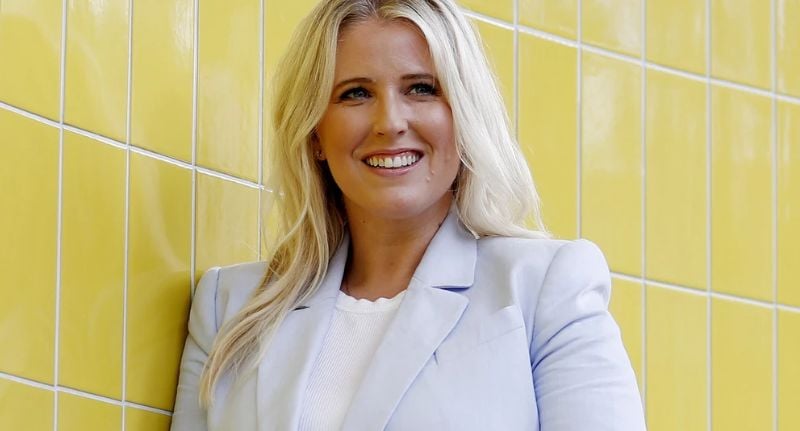
Alison Hurbert-Burns exits Foxtel paving way for new appointments
Alison Hurbert-Burns has announced she is stepping down from her role of commissioner and executive director, content at Foxtel.
Hurbert-Burns made the announcement on her LinkedIn page, writing: “And that’s a wrap… after 6 epic years, I made the decision late last year to tender my resignation from the Foxtel Group and have shared the news with my team this morning.
“I’m very thankful for the chance to work in the Australian and global television industry. It’s made up of some of my favourite people, brilliant minds and wonderful colleagues. We get to tell stories that make a lasting impact, to make ART and be part of our audiences lives if only for a moment in time.”
The news was confirmed in an email from Foxtel CEO Hilary Perchard, who praised Hurbert-Burns for her contributions during her time in the role: “Ali leaves behind a world-class entertainment team who are ready to continue her work. She will leave us at the end of February, however her original commissions including the upcoming series The Last Anniversary and Mix Tape will continue to come to market and to our Foxtel Group customers over the next 12 months.
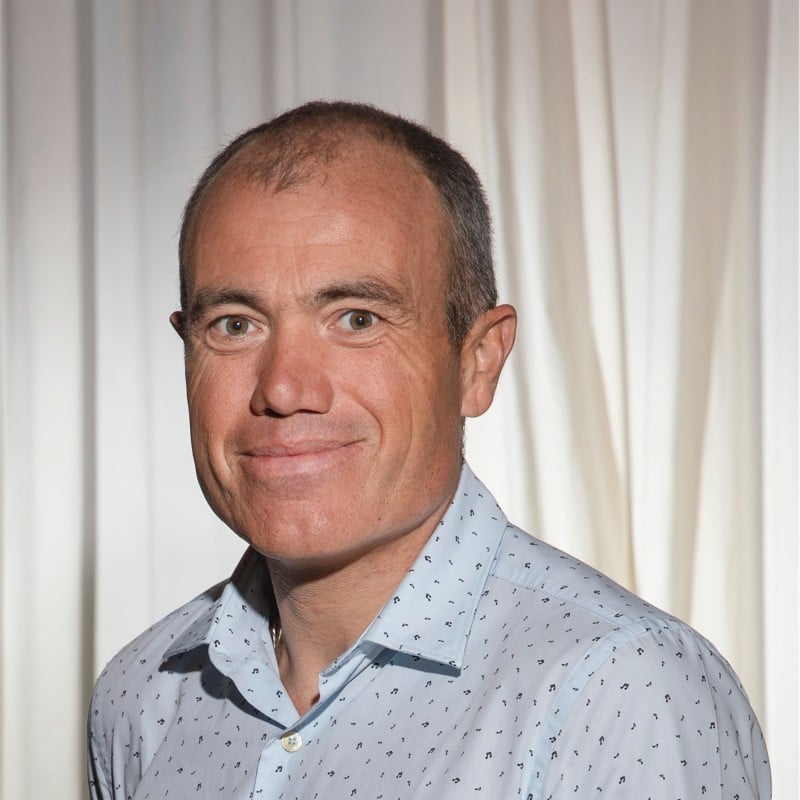
Foxtel CEO Hilary Perchard.
“Ali joined Foxtel Group in 2019 with the task of resetting our entertainment content strategy, managing our relationships with studios and securing more rights in preparation for our upcoming entertainment streaming platform. In 2020, Ali was appointed executive director of BINGE scaling its operations from an emerging streamer to the powerhouse entertainment product it is today with over 1.5m subscribers.
“In her time at Foxtel Group, Ali has overseen the commissioning and production of 25 original series that together have secured over 100 award nominations for the Foxtel Group and more importantly, set new benchmarks of viewing and engagement with our customers.”
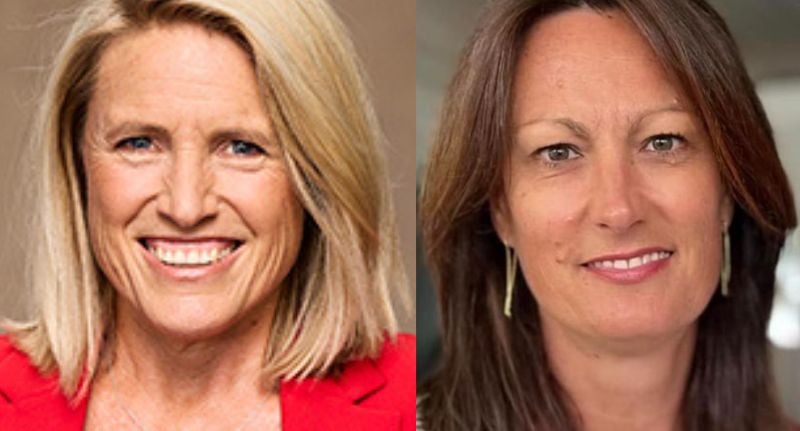
Wendy Moore and Stephanie Quinn.
Hurbert-Burns’ departure now paves the way for new opportunities within the team, with Wendy Moore and Stephanie Quinn, appointment to new and expanded roles.
Moore will be taking on the role of executive director – entertainment content, while Quinn will take on executive director – content and commercial partnerships.
Fleur Fahey and her team will report through to Quinn.
Jeevan Haikerwal will continue his work on content strategy, now reporting to the group strategy team under Will Loh.
Pictured: Alison Hurbert-Burns
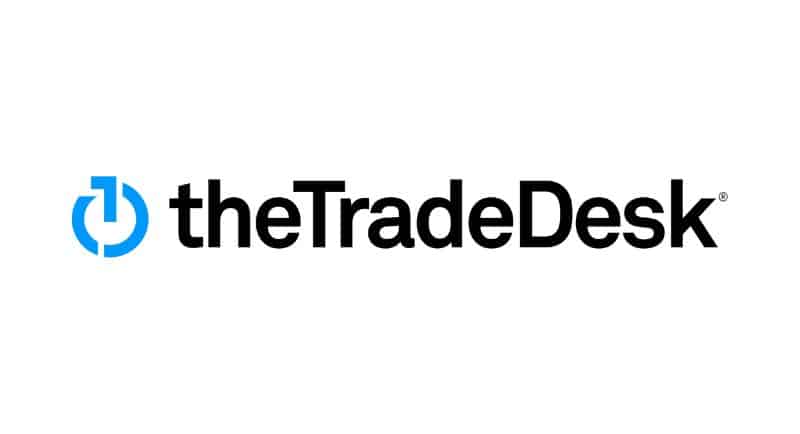
The Trade Desk Q4 misses expectations for the first time since 2016
Shares of The Trade Desk (TTD) plunged by 26% on Thursday after the company’s Q4 2024 results came in below both its own guidance and Wall Street expectations for the first time since going public in 2016.
Q4 results disappoint
In its Q4 earnings report, The Trade Desk posted revenue of $741 million, a 22% increase from the previous year but still below the company’s guidance of at least $756 million. The company also fell short of analysts’ expectations, causing concern among investors.
Founder and CEO Jeff Green acknowledged the miss, stating: “I’m disappointed that we fell short of our own expectations in the fourth quarter.” While revenue growth was solid, the company’s forward guidance for Q1 2025 has also raised questions. The Trade Desk forecasts at least $575 million in revenue for the first quarter, representing a 17% year-over-year increase, a slowdown compared to recent growth rates.
Green attributed the revenue miss to “a series of small execution missteps” during Q4. While he didn’t go into specifics, he noted that the company had undergone a major restructuring in December, which included layoffs and shifts in reporting structures to refocus its efforts on key client categories, such as brands, agencies, and business verticals.
Despite the short-term setback, Green maintained optimism about the company’s long-term prospects. He highlighted that “accounts with joint business plans (JBPs) grow about 50% faster than the rest of the business,” signalling potential for faster growth through deeper relationships with brands.
[click to enlarge] The following table summarises the Company’s unaudited consolidated financial results for the three and twelve months ended 31 December, 2024 and 2023 ($ in millions, except per share amounts).
What’s next for The Trade Desk?
Green remains confident in the company’s future, with Connected TV (CTV) continuing to be a major driver of revenue. He also pointed to digital audio as an untapped opportunity, describing it as “the most on-sale corner of the internet.”
The Trade Desk’s position in the market could also benefit from potential changes in the competitive landscape. Green suggested that Google, facing ongoing antitrust challenges, may eventually “exit the open internet,” a move that could create room for The Trade Desk to expand its share of the ad tech space. He also criticised Amazon’s approach to advertising, saying, “Amazon is asking advertisers, big and small, for their advertising budget while competing with most of the Fortune 500 companies in some way.”
Looking ahead
While the company’s stock price has taken a hit, The Trade Desk still sees substantial growth potential. The ad tech leader estimates its market opportunity at over $900 billion, and the guidance for Q1, though lower than expected, still points to continued expansion. Despite this, investors are waiting to see if the company can regain momentum and meet its ambitious growth targets.
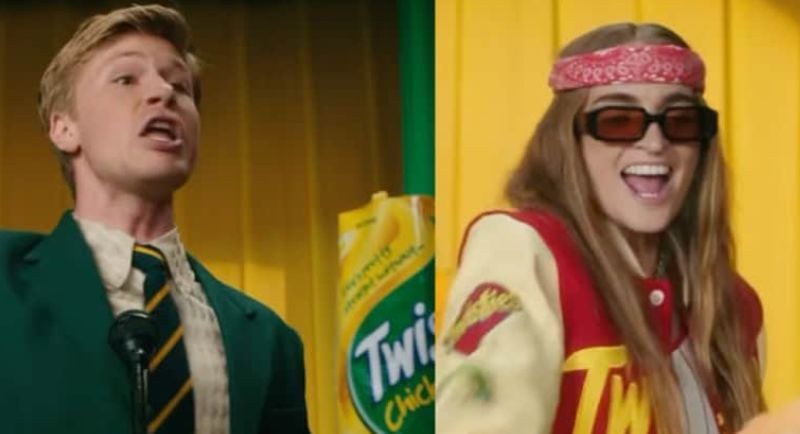
How sparking a flavourful debate reignited the Twisties brand
PepsiCo brand Twisties brought together Robert Irwin and G-Flip to settle the score between cheese and chicken on The Great Flavour Debate.
The campaign, launched last year by media and creative agency VaynerMedia, and is a finalist for the TikTok Ad Awards in the Great Creative Campaign category. It saw a rise in brand volume and value growth as a result of its TikTok-driven approach and consumer engagement.
“Over the years, we’ve seen the fervour that Aussies have for their preferred Twisties flavour – chicken or cheese – so we had to finally put it to the people and see which flavour comes out on top,” Alessia Taddei, chief marketing officer of PepsiCo ANZ Snacks, said.
“Partnering with TikTok we saw some of the highest engagement we’ve ever seen on the brand, and we were delighted with the cultural movement and results the campaign generated. Go Chicken!”
Sparking the taste rivalry
As a 75-year-old Australian brand, Twisties was facing slipping sales and fading cultural resistance despite legendary status and rivalry between the chicken and cheese flavours.
The brand needed to reignite the passion, drive engagement and remind Australians of Twisties by sparking the debate between the cheese and chicken flavours with a campaign that can spark a cultural movement and drive authentic engagement.
Bringing the debate to life
Last year, the PepsiCo brand launched the controversial hybrid flavour ‘Chickeese’, sparking a mock national flavour crisis. To settle the debate, the Chicken vs. Cheese debate was reignited with Australia’s Official Twisties Election.
Twisties brought candidates to represent both flavours: Irwin (@robertirwin) for Team Chicken, and G Flip (@gflipmusic) for Team Cheese. Both campaigned for their respective sides in a bid to rally Australians to vote for their favourite flavour.
The brand brought the debate to life for the campaign using TikTok’s TopView and InFeed Reach ads to optimise its visibility and engagement.
TopView placements announced the election and introduced ‘Chickeese’, which ensured mass awareness from day one, capturing user attention with premium placement.
In-Feed Spark Ads drew attention to the flavour rivalry, sparking engagement and user-generated content with Australians. The campaign also used In-Feed Reach which extended this impact, reaching millions of users and maintaining high engagement at a cost-efficient eCPM.
The Great Flavour Debate concluded with a nationwide vote to settle the debate and crown Australia’s favourite flavour. Over 25,000 fans cast their votes, and the chicken flavour was crowned as the nation’s favourite Twisties flavour.
Driving culture to deliver sales
The Great Flavour Debate campaign’s TikTok forward campaign exceeded expectations, resulting in a 31.3% uplift in ad recall and an 18.1% brand awareness increase.
Brand Favourability also rose by 2.3%, and audience penetration exceeded expectations at 57%, surpassing the 50% target.
“We saw extremely strong engagement through the TikTok comments section – flowing into general discourse and conversations with our Twisties fans across the nation,” Twisties spokesperson said.
“This was a testament to how the platform drives culture in Australia… with that groundswell delivering excellent sales growth for Twisties (both Chicken and Cheese!) during the campaign.”
Top image: Robert Irwin and G-Flip
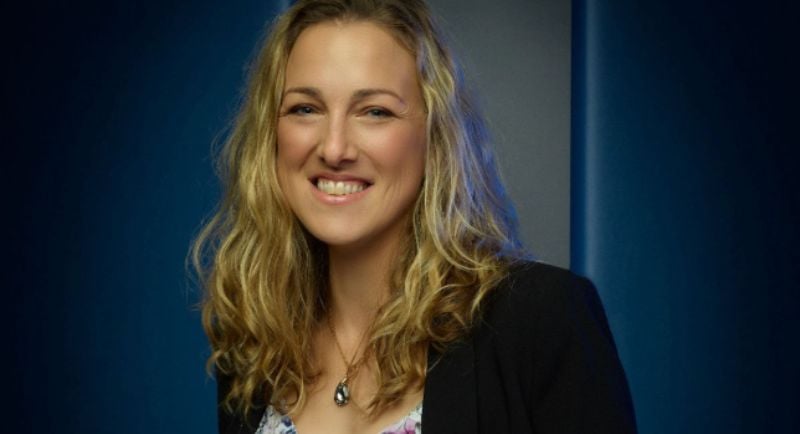
From Authority to Affinity: How Financial Brands Can Rebuild Trust and Influence in a Distrustful Era
The financial services sector is undergoing a dramatic shift. Traditional models of influence built on authority are rapidly losing relevance, in a world where information is at the fingertips of everyone with access to the internet and institutional distrust is at an all-time high. Affinity – grounded in empathy and relatability – is emerging as the most potent force shaping financial decision-making. Understanding this opens up a huge opportunity for brands in this sector.
The latest instalment of The Growth Distillery’s Influence Codes series, in partnership with Kantar and Ogilvy, paints a striking picture of a financial services sector in transition. Consumers are grappling with rising living costs and economic uncertainty, and their confidence in financial institutions is falling. The statistics are sobering:
• 72% feel pessimistic about their financial future.
• 70% struggle to afford basic necessities.
• 67% of Australians lack confidence in understanding financial terms.
• 52% express distrust in financial institutions.
Against this backdrop, the traditional top-down influence models, where financial institutions influenced decisions with authority and experience, have become less effective. Consumers are seeking more control and turning to sources that feel more personal, aligned with their lived experiences and they believe are truly on their side.
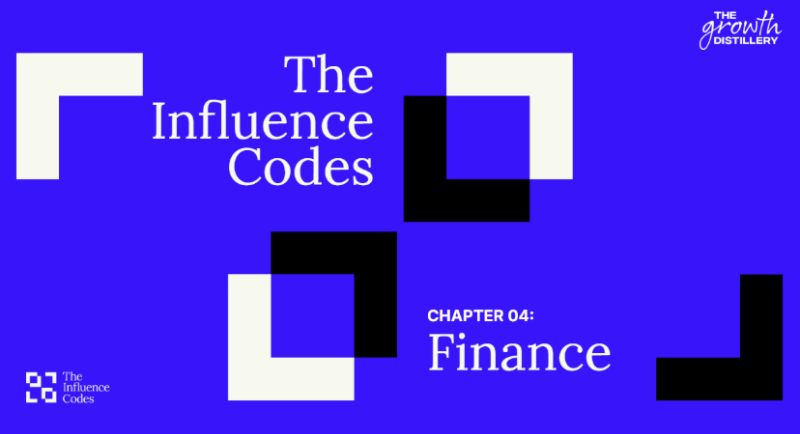
Affinity: The Key to Influence
41% of Australians now say friends and family are their primary source of financial guidance. This growing reliance on proximate and personal connections shows us there is a deep desire for relatability and trust, which they are not getting elsewhere. However, while friends and family provide comfort and relatability, they lack the expertise needed to navigate increasingly complex financial decisions. One in two Australians failed our financial literacy test and 80% do not consider themselves very knowledgeable about financial terms and concepts. And so we find ourselves in an influence vacuum, which poses both a challenge and an opportunity for financial brands.
Here’s where Affinity comes into play. The Influence Codes shows that Affinity has now overtaken Authority as the most powerful driver of influence more broadly, but interestingly, this is particularly true in Finance, where the decisions are more high risk and complex than other sectors.
Yet, expertise and information remain critical for important decisions like budgeting, credit cards, and investments. The challenge for financial brands is to integrate these elements seamlessly into a framework that prioritises empathy for their customers and relatability. Re-establishing themselves as trusted partners by balancing relatability with the expertise and authority they’ve historically been known for. After all, only 28% of Australians feel confident making such decisions, underscoring the need for clear, accessible guidance.
A Call to Action for Financial Brands
The findings from this research are a wake-up call for the financial sector. Brands that fail to adapt, risk losing relevance in a world where consumers are redefining how they seek and experience influence. Those that embrace Affinity, however, have an unparalleled opportunity to rebuild trust, bridge the financial literacy gap, and become indispensable partners in their customers’ financial journeys.
But time is of the essence. The cost-of-living crisis has heightened the urgency for meaningful solutions. Consumers are increasingly selective about where they place their trust, and only those brands that demonstrate empathy and deliver real value will succeed.
To thrive in this new era of influence, financial brands must:
• Be Generous And Selfless. Character is the most important factor in Affinity, so being generous and selfless will signal approachability and trust.
• Demonstrate Understanding Context. Given financial decisions are highly personal, making the customer feel they and their context are central to the decision is vital.
• Convert Information Into Options. With low rates of financial literacy, reducing complexity by providing comparative options will reduce overwhelm and information overload.
• Be Experts By Experience. Authority is still vital in these decisions but showing how that expertise is relevant will make it more compelling for your audience.
This is not just a shift in strategy; it is a shift in mindset. Affinity is not about abandoning Authority, but enhancing it with empathy. Over time it has become clearer that the success of the financial sector will depend on its ability to connect with consumers in a way that feels authentic, personal, and empowering. The era of Affinity is here, and those who embrace it will become an indispensable partner in their customers’ success.
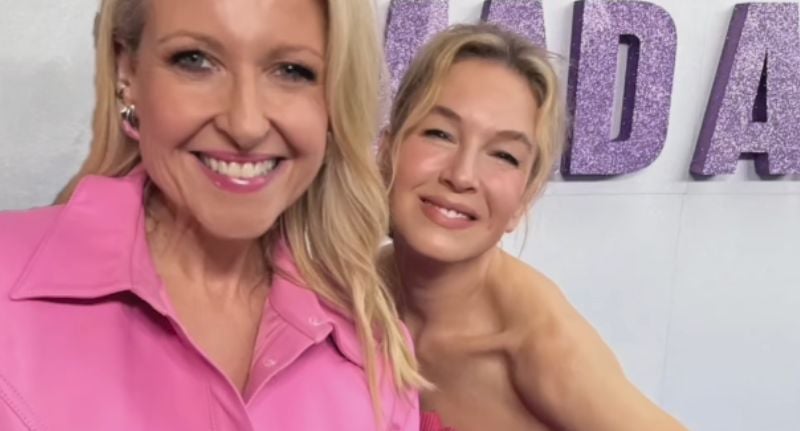
Angela Bishop explores why we’re still mad about Bridget Jones in Valentine’s Day special
Bridget Jones is happy to let the world know she’s mad about the boy… and now it seems audiences feel the same way about her.
To celebrate the release of the much-loved character’s latest film offering, Bridget Jones: Mad About the Boy, fans are invited to spend Valentine’s Day with 10 News First as it revisits the beloved franchise that all started with one woman and her diary.
For over 20 years, 10’s entertainment editor Angela Bishop has been at the heart of Bridget Jones fandom, interviewing its star Renée Zellweger from the moment she first stepped into Bridget’s iconic heels way-back-when in 2001.
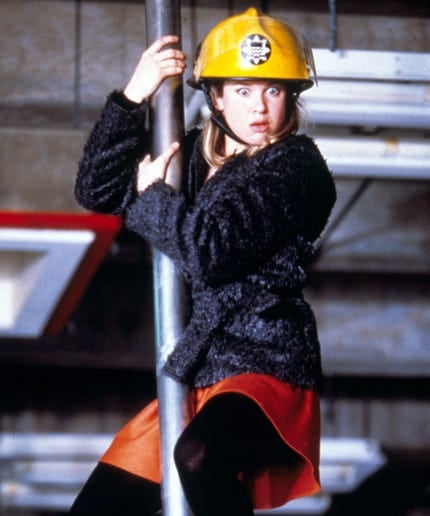
Renée Zellweger in a still from the first Bridget Jones movie.
Now, with Bridget Jones: Mad About the Boy hitting cinemas, Bishop reunites with Zellweger for an exclusive deep dive into the character that defined a generation.
From the early debate over a Texan portraying Britain’s favourite (then) singleton, to the timeless appeal that keeps Bridget relevant today, the special explores why we’ve all been a little mad about her for years.
With past and present cast members joining the fun, Mad About Bridget Jones is filled with nostalgia, laughs, and a few surprises along the way.
Mad About Bridget Jones aires Friday, 14 February at 8.30pm on 10 And 10 Play.
Pictured: Renée Zellweger and Angela Bishop
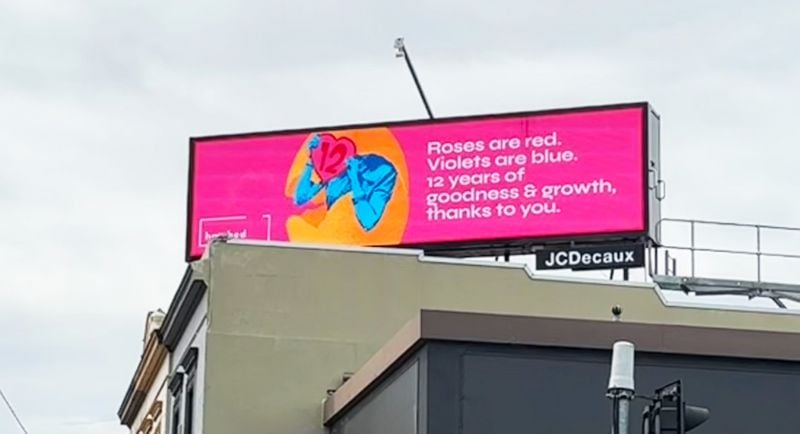
Hatched dedicates billboards to clients, partners and staff for Valentine’s Day
Hatched is showing love this Valentine’s Day with out-of-home placements dedicated to its clients, partners and staff.
The placements are a heartfelt thank you from the independent agency as it marks its 12th birthday.
“Our goal has always been to build partnerships that last 20 years or more. And just like any great relationship, that takes care, commitment, and a little bit of love,” Stephen Fisher, Hatched CEO, said.
“This Valentine’s Day, we’re celebrating 12 years of growth with our incredible clients, partners and our Hatchlings – because we wouldn’t be here without them.”
The public display of affection is live in Sydney on General Holmes Drive and the M4 Motorway. In Melbourne, it can be seen on the Monash Freeway, Richmond, Collingwood and South Yarra.
The creative was designed and produced by GoodOne Creative, with JCDecaux, QMS and oOh! Media providing the media placements.
“This is a love letter to the people that have made Hatched what it is today,” Fisher added. “It’s a reminder that a great business partnership is like any other relationship – you need trust, shared values and a commitment to growth.”
Hatched’s heartfelt gesture comes after it was recently appointed as media agency for meat snacks brand Jack Link’s alongside Special, which was appointed as the creative agency
Danni Dimitri, managing partner and head of strategy at Hatched, said of winning the media account: “What a thrilling way to kick off the year. The strategic way forward for the Jack Link’s business is clear, boundaries have already been pushed – and this is just the beginning.
“Dan and the Jack Link’s team have fueled our collective passion for retail, and the energetic, indie spirit shared by Special and Hatched throughout the creative and connections process will no doubt continue to drive our relentless pursuit for disruptive work.”

Escape sets sail with first-ever Readers’ Choice Cruise Awards
Australia’s top travel media brand, Escape, is launching its inaugural Readers’ Choice Cruise Awards, presented by My Cruises, to honour the best in the industry.
Kicking off this Sunday, 16th February, Escape will invite its 3.7 million-strong audience to vote for their favourite cruise lines, ships, and standout experiences across 18 categories – including best for families, top dining, and most popular overall.
News Corp Australia’s head of travel, Kerrie McCallum, said: “Cruising is such a popular topic with
our travel audience, and there are so many new and exciting developments in the category that it
felt like a great time to capture what our readers are loving, or not.
“Escape is the authority on travel in Australia, we’ve got an enormous, curious, well-travelled and
vocal audience, so it will be fascinating to see who and what they vote for and why.
“We’re so pleased to have My Cruises on board as our launch partner. Cruising is a growing
category and one that is constantly innovating and improving, and I’m hoping that everyone from
experienced cruisers to the ‘cruise curious’ will learn something new to help plan their next
holiday.”
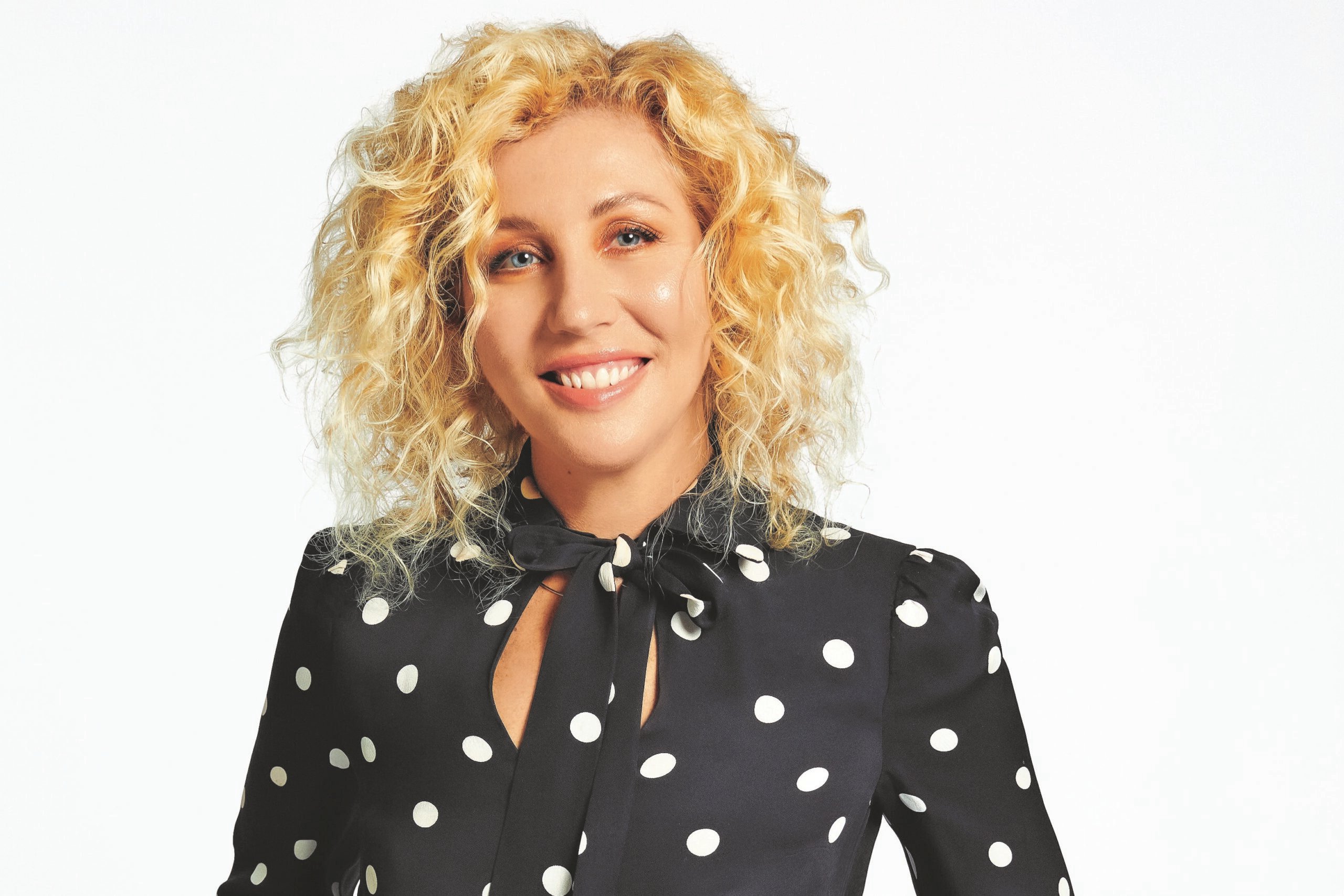
News Corp Australia’s Head of Travel Kerrie McCallum.
My Cruises chief executive officer Ryan Thomas said: “We are excited to partner with Escape to
support the Readers’ Choice Awards. We know that the readers of Escape are the expert
consumers and the best people to judge the awards and we can’t wait to see who the winners are.”
Voting for the 2025 Readers’ Choice Cruise Awards will be open from this Sunday, aligning with
Escape’s annual cruising special issue, through to Sunday 2nd March.
Readers can have their say at escape.com.au
Results from the Readers’ Choice Cruise Awards will reveal insights on what’s resonating with Australian cruisers, and cruise intenders, at this point in time. It will also help shape and generate Escape’s content roster throughout the year.
A consumer marketing campaign will support the Awards, with promotion across digital, print, and social channels.

Nibble Edge appoints new head of media
Jack Baldwin has been appointed as the new head of media for Nibble Edge and will oversee media alignment, creative, and digital services to deliver seamless, high-impact work for clients.
He joins the creative agency from Athyna, Kaimera’s high growth bespoke agency which he launched. Baldwin was director of partnerships at Rufus where he oversaw Amazon’s paid media activities in Australia. He also held senior roles at DWA, and PHD, shaping media strategies for B2B, tech, FMCG and finance brands.
Baldwin, who also joins the agency as a partner, said of his new role: ‘I’m coming on board at Nibble Edge at a pivotal moment. Its integrated approach, underpinned by deep digital and creative expertise, is exactly what brands need in today’s fast-moving landscape.
“I’m excited to help shape a media offering that’s collaborative, data-driven, and results-focused. I want to ensure clients get the best of both creative thinking and strategic media execution.
“More importantly, it’s about people; partnering with great people and clients, doing great work and having some fun. I’m looking forward to the journey. It’s exciting,” he added.
Fergus Stoddart, founding director of Nibble Edge, called Baldwin’s appointment a key step in strengthening Nibble Edge’s integrated capabilities.
“Jack’s ability to quickly bridge media, technology, and creative thinking makes him the perfect fit. He’s already making a big difference, driving digital transformation amongst clients beyond media.”
Stoddart reinforced the importance of integrated agencies in today’s market: “Brands need agencies that don’t just deliver one piece of the puzzle but bring it all together in a way that makes sense. With Jack on board, we’re continuing to break down silos between media, creative, and digital to drive better results for our clients.”
“For us this appointment marks another milestone in our rapid evolution and reinforces our position as a modern, integrated agency built for the future.”
Baldwin’s appointment follows an exciting period of growth since digital experience agency Nibble merged with creative and content Edge back in July. The merged agency has continued its winning streak this year with the recent win as digital agency for Unilever Food Solutions. He will be oversee Nibble Edge’s current portfolio of media clients including Hearing Australia, Kwik Kopy, Carrera and Unilever Food Solutions.
Top image: Jack Baldwin
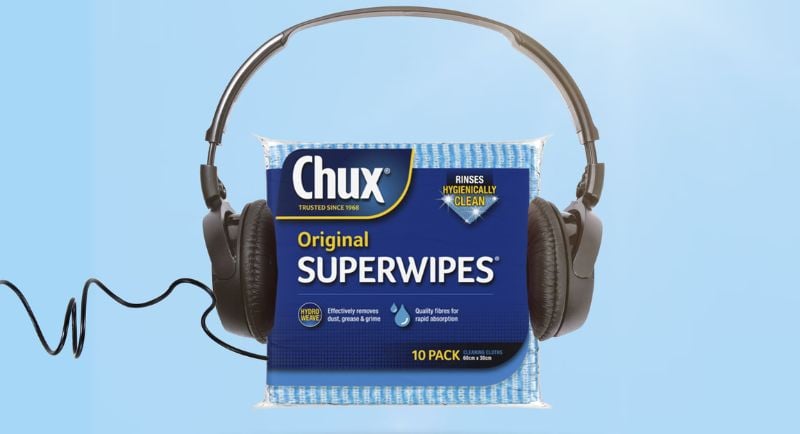
Chux and Spotify curate the summer cleaning playlist via Connecting Plots
Chux has teamed up with Spotify to put feel-good vibes into its new range of products to make cleaning quicker and enjoyable with Connecting Plots.
The brand leverages results from 2019 Jelmar survey that found that listening to music is not only pleasurable but also makes everyday tasks, like cleaning, more enjoyable.
A search of “Cleaning Playlists” on the music streamer results in hundreds or thousands of playlists dedicated to music to clean to, these playlists see a notable surge in streaming, especially during spring and summer periods.

The brand and #cleantok Influencer Brit Cunningham have curated the summer cleaning playlist – ‘Clean Like No One Is Watching’ on Spotify, supported by advertising, contextual media placements and influencer content to road test it and encourage communities to contribute to the playlist.
“Chux products have always been thoughtfully designed to get the job done,” says Clorox marketing director, Lee Everson.
“Adding some music to set the mood, we are hoping to inject a little joy and positivity to keep people upbeat and motivated. The new year is the right time to do this as it’s where routines are set for the year ahead.”

Dave Jansen, Connecting Plots co-founder, said: “We’re not saying cleaning is fun. That would be a lie. But that doesn’t mean we can’t associate cleaning with a bit of playfulness and fun. Music is the universal shortcut to just that.”
The Spotify branded playlist launched on 20 January 2025 and the campaign will run across Spotify ads, Meta, Digital OOH and influencers throughout the summer period.
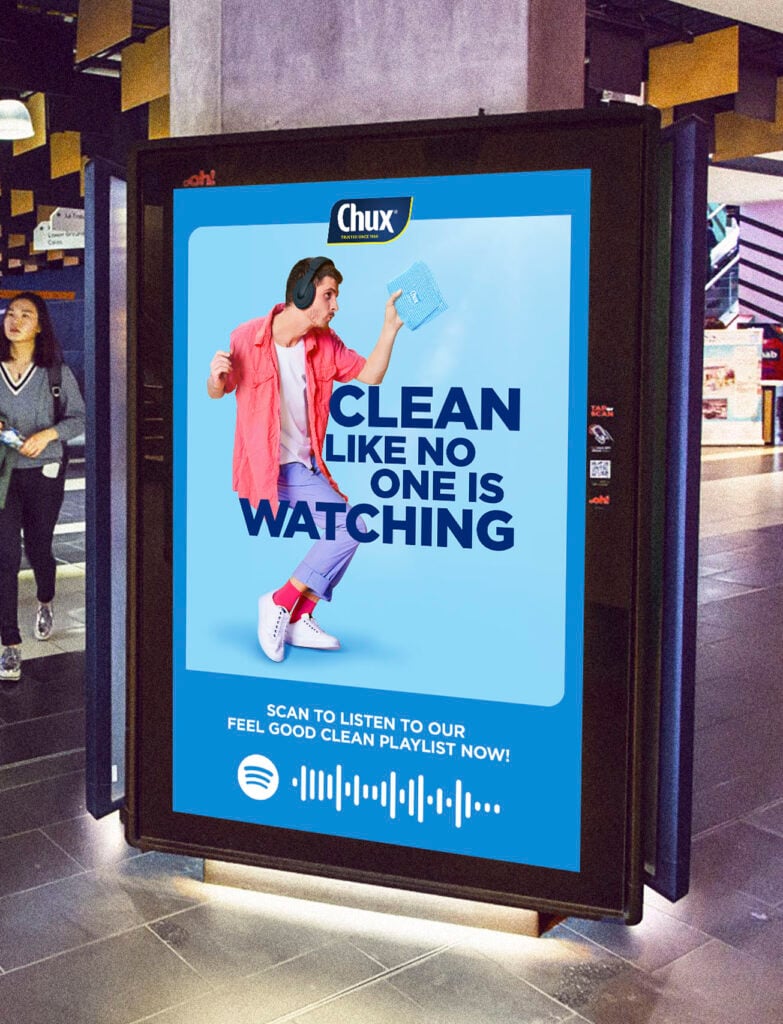
Credits
Client: Clorox
Marketing Director ANZ: Lee Everson
Marketing Manager: Lauren Way
Brand Manager: Katrina Villamor
Creative Agency: Connecting Plots
Chief Creative Officer: David Janson
Strategy Partner: Craig Page
Senior Art Director: Alexa Burchell
Senior Copywriter: Phil Barnes
Senior Account Director: Alana Spinelli
Design Director: Blair Palmer
Creative Operations Director: Mary Morrell
Social & Influencer Agency: a.glo
Managing Partner: Kent Pearson
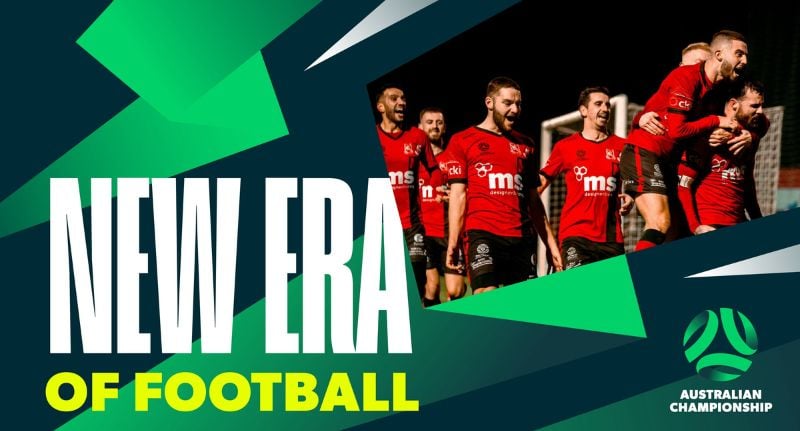
Football Australia taps Hulsbosch to brand national second tier
Football Australia has officially announced the launch of its national second-tier competition, the Australian Championship, with independent branding and design agency Hulsbosch leading the charge on brand development.
Kicking off in October, the Australian Championship is set to reshape Australian football, creating a crucial bridge between state-based leagues and the A-League Men’s pathway. The competition will provide a national platform for clubs, players, and communities to showcase their talent.
Hulsbosch, an award-winning agency, is responsible for shaping the brand identity, including positioning, naming, visual design, and brand guidelines – marking a historic first for any national second-tier competition across Australian football codes.
Client strategy director at Hulsbosch, Carolyn Pitt, said: “The Australian Championship is an exciting proposition that celebrates, on the national stage, the raw talent and vibrant communities that make Australian football unique.
Anchored by the theme of ‘Breakthrough’, the brand identity reflects the competition’s energy, ambition, and momentum, with a bold design featuring the breakthrough graphic and colours of Championship green and deep steel, symbolising growth, resilience, and unity.”
Built on the pillars of competitive integrity, excitement, and commercial appeal, the Australian Championship aims to showcase the authenticity, ambition, and deep community roots of Australian football. This new competition will engage fans nationwide, providing a thrilling platform for clubs while establishing a vital new pathway for the next generation of footballing talent.
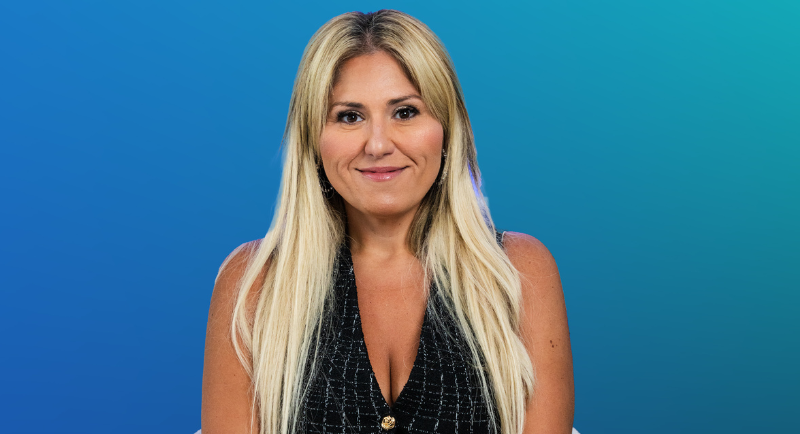
Brand Loyalty: Why User Empathy Matters
In today’s competitive market, brands that will survive and thrive are the ones that truly understand and care about their consumers and end user. The ones that lose sight of this empathy risk fading into irrelevance and will fade into an abyss.
What can we do to build a brand that stands the test of time, it’s essential to focus on three key elements:
• User Experience (UX): A seamless, intuitive design that puts users first
• User Interface (UI): Aesthetically pleasing yet functional design
• User Empathy: The bedrock of genuine customer loyalty
A Costly Mistake Many Brands Make
I’ve recently encountered a frustrating experience with a long-standing brand, a big brand. This is a brand i had been loyal to for years. Despite this strong brand relationship, a lack of user empathy not only in store and then online – then turned a simple issue into a stressful ordeal where it took triple the time, which I didn’t have to get to a outcome. Without processes in place to genuinely support users, even the most established brands can break down.
How to avoid this
For Startups: Set yourself apart by prioritizing user empathy from day one. What does this look like? How will you treat these issues?
For Established Brands: Failing to listen to and support your loyal users is a risk you can’t afford to take.
Brands, big or small, must prioritize their users. user experience and interface matter, but true brand loyalty is built on empathy. For small business and startups there’s a massive opportunity to step in and serve customers where larger companies fall short. For established brands ignoring the trust of their community can be a fatal mistake.
Three Reasons Companies Struggle To Develop Consumer Empathy
In my experience, companies encounter three common challenges when they try to build a consumer empathy program.
1. Empathy is complex and multifaceted.
Empathy is difficult to quantify; there’s not a box that the company can simply check off when they’ve “done” empathy. Empathy can be difficult to assemble its pieces into a meaningful, actionable image.
2. Companies don’t have enough useful data about their consumers.
Traditional market research approaches like focus groups and surveys rely on memory and self-reporting, which are inherently limited. Forward-thinking companies access more meaningful insights by understanding consumers in their natural environments, whether at home, in the store or on the go.
3. Employees often need to develop new skills around empathy.
Many companies struggle to build empathy throughout their ranks because their employees aren’t naturally skilled in active listening. But companies (and consumers) shouldn’t have to suffer through awkward, unrewarding interviews while employees gain those skills and develop a sense of empathy.
The message is clear: “Brands that forget their users will pay the price.”
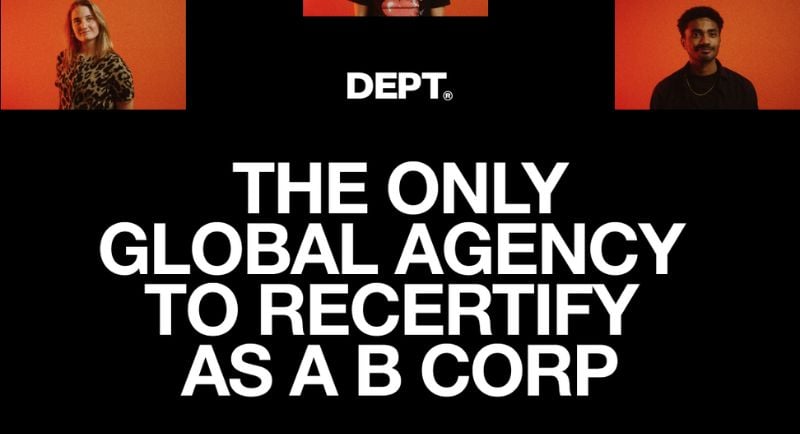
DEPT achieves B Corp recertification
DEPT has recertified as a B Corp after first earning the recognition in 2021.
Businesses that are certified B Corp must undergo recertification every three years to ensure continuous improvement of their social and environmental impact, according to the program.
The agency has expanded its reach with a global team of over 4,000 across five continents, as well as furthered its commitment to balancing profit with purpose.
In 2024, DEPT noted that more than 10% of its profit came from impact projects like Undo the Firewall, and Easy Genomics, and worked for clients such as Daniel’s Music Foundation, ReflexAI, Ocean Spray, United States Olympic & Paralympic Committee, and eBay.
“B Corp is more than just a badge of honor,” said Dimi Albers, Global CEO at DEPT. “At a time when companies and governments are backing away from ESG commitments, staying B Corp certified helps us remain accountable and transparent in our operations and stay true to our values.
“It proves that we’re not just talking about sustainability and impact. We’re galvanizing it into the DNA of how we operate, who we hire, and the work we deliver for our clients.”
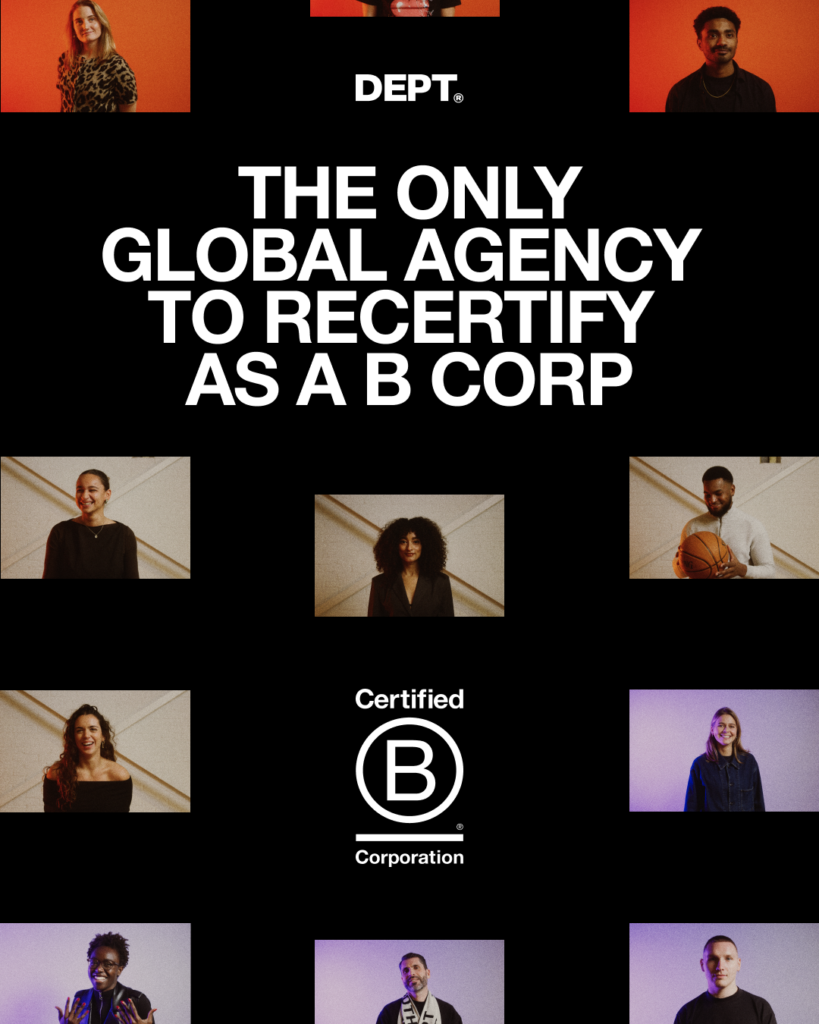
Aligning growth and purpose
DEPT has expanded its business into the Americas and APAC with several acquisitions and launched exciting work, but always in alignment with its B Corp certification.
The agency rolled out initiatives such as living wage policies, sustainable procurement standards, and employee assistance programs across all its offices to ensure its impact is scalable at every level of the business.
‘B Corp framework challenges us to keep pushing forward’
DEPT noted that its B Corp recertification ensures it the business is prepared to meet new requirements and continue leading by example as corporate ESG commitments face increasing scrutiny, agencies face more activist activity, and regulations like the EU Corporate Sustainability Reporting Directive (CSRD) raise the bar for accountability.
“The B Corp framework challenges us to keep pushing forward—to be better, more transparent, and more impactful,” said Pooja Dindigal, Global Head of Impact at DEPT.
“It’s both a north star and a catalyst for change, helping us navigate the complexities of growth while creating a more sustainable and equitable world. We are committed to this never-ending journey and excited about the positive impact we can achieve together and with our clients.”
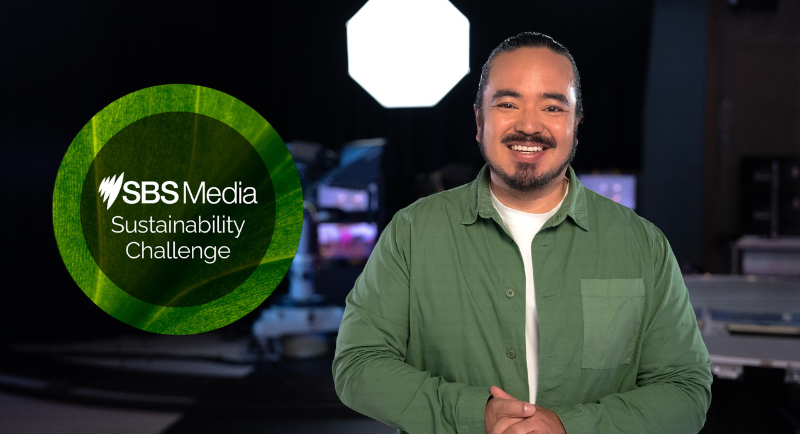
Submissions open for SBS Media’s Sustainability Challenge
Applications have opened for the SBS Media’s Sustainability Challenge, which aims to encourage brands to normalise sustainable behaviour and highlight better environmental practices for Australian consumers.
The broadcaster is offering $500,000 in advertising inventory to the winning campaign, as determined by a jury of leading industry professionals.
“In launching the SBS Media Sustainability Challenge, we’re asking brands and agencies to work with us to drive positive change to protect our planet by rethinking how they authentically represent sustainability in their marketing campaigns,” Kate Young, national manager of SBS CulturalConnect, said.
“SBS has made serious inroads in measuring and working to reduce our environmental footprint, but we know change only comes about when we work together, and through this initiative, we’re providing a platform to elevate creative ideas that normalise sustainable practices to Australian audiences.”
Young noted that SBS Media has a history of using such challenges to drive positive change across the industry: “In 2017, SBS Media launched the Diversity Works Challenge designed to encourage Australia’s advertising industry to rethink how diversity is represented in their marketing campaigns.
“We’ve seen the impact inclusive marketing has had in Australia, and we are again putting up significant inventory to help drive creativity and innovative thinking in normalising sustainable behaviours.”
Submissions for the challenge are open until March 31, with brands and agencies asked to go to online and submit a 30-second television script. The jury will judge the script and rationale, with entries to be shortlisted in April and a final winner announced in Q3 of 2025.
“This is such a strong opportunity for brands, many of whom are already doing great work in this space, to produce something really creative and interesting that will get noticed and help spark positive conversation around sustainable behaviours,’ said Young.
The jury for the SBS Media Challenge consists of: Adam Liaw, host of SBS’s The Cook Up and co-chair of Sustainable Screens Australia; Jane Palfreyman, SBS chief marketing and commercial cfficer (Chair); John Pabon, sustainability author and consultant at Fulcrum Strategic Advisors; Abigail Thomas, SBS head of sustainability, and Kate Young.
The winning ad will also receive consulting services and training through Sustainable Screens Australia to help ensure the advertisement meets best practice for sustainable production.
“I’m very proud to be involved in the SBS Media Sustainable Media Challenge,” said Liaw. “As Co-Chair of Sustainable Screens Australia (SSA), I know this is such an important initiative. The Cook Up with Adam Liaw is the first Australian television program to have its carbon footprint approved by Sustainable Screens Australia, and we want to encourage more productions and advertisers to be thinking about the carbon footprint of their productions.”
Top image: Adam Liaw
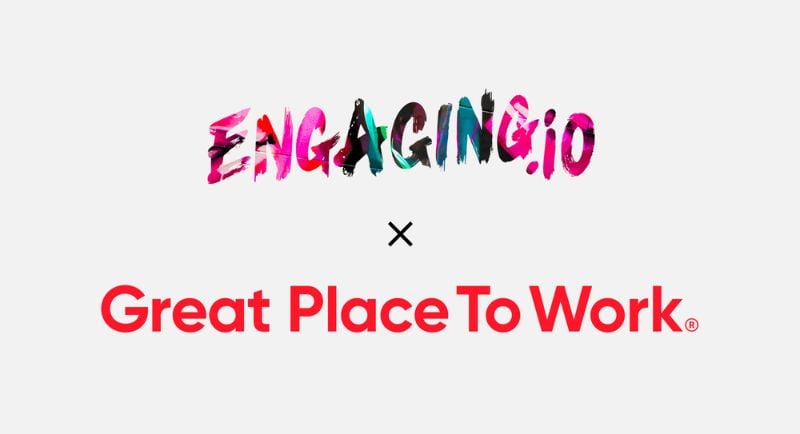
Great Place To Work taps Engaging.io to power HubSpot integration
Great Place To Work has partnered with Engaging.io to implement the HubSpot marketing platform across its ANZ and ASEAN teams to deliver impactful campaigns.
The global authority on workplace culture, which is known for evaluating and celebrating outstanding workplace cultures, will integrate HubSpot’s Marketing Hub across operations in Australia, New Zealand, Singapore, Philippines, Indonesia, and Vietnam.
Great Place To Work noted Engaging’s value alignment as a key factor in its decision. The implementation will reflect its focus on adding more value to clients by enabling team members to work more efficiently and with state of the art technology.
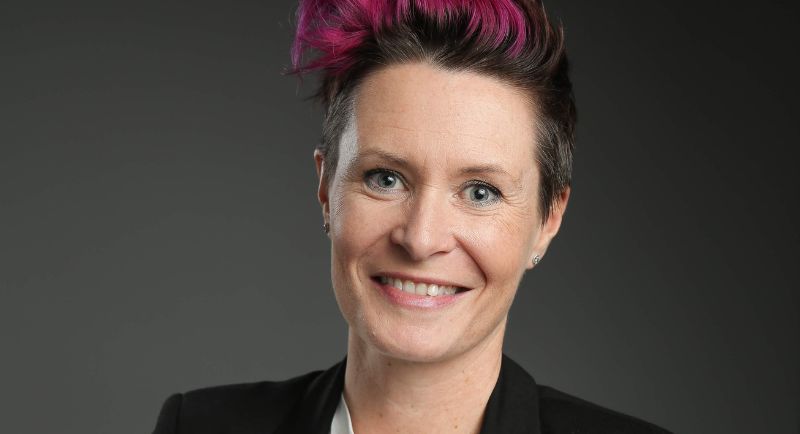
Michelle O’Keeffe
“As a business that is passionate about creating an exceptional workplace, we’re thrilled to partner with Great Place To Work,” Michelle O’Keeffe, CEO of Engaging, said.
“Our ranking on their Best Places To Work list reflects our commitment to fostering an exceptional team culture, and we’ll bring that same ethos to this collaboration. By implementing HubSpot’s Marketing Hub we will empower their teams across ANZ and ASEAN to streamline operations and drive smarter, data-driven marketing strategies.”
Roland Wee, board chair, Great Place To Work ANZ and ASEAN, added: “We believe in working with companies that share our values. Engaging has been on our Best Workplaces rankings for three consecutive years and this is testament to their culture. If Engaging takes care of their team, I am confident that their team will take care of ours, and this is evident even in the short time that we have started working on this project.
“Engaging also came highly recommended by HubSpot and this is proof that having a strong company culture is not just better for people, it is also better for business. HubSpot is a well-recognised platform and is the next step in our implementation of advanced technologies. I look forward to a fruitful project with Engaging to deliver even greater value to Great Place To Work clients around the region.”
The win for Engaging comes after an exceptional 2024 where it added more than 40 new clients, expanded its US operations and significantly increased its solutions consulting team.
Television
ABC bleeds viewers but costs Aussies more than Netflix
As Stephen Drill reports in The Daily Telegraph, new data shows the national broadcaster shed a million viewers and listeners in a year, with TV and radio numbers in freefall.
Adding to the headache? A $100 million long-service leave liability.
ABC boss fought for Lattouf – but higher-ups pulled the plug
As Joana Panagopoulos reports in The Australian, Lattouf’s lawyers argue she was treated unfairly, while ABC stars like Patricia Karvelas and Laura Tingle voice opinions without backlash.
Green and two senior execs testified in her unfair dismissal case, revealing a key meeting where Lattouf was pulled off-air over a Human Rights Watch post.
Tech
Musk’s $155b OpenAI bid comes with a catch
As The Australian Financial Review reports, the billionaire, who co-founded OpenAI before walking away, is fighting to keep it mission-driven. His court filing makes it clear: drop the commercial pivot, and the bid disappears.
But if OpenAI pushes ahead, Musk insists the non-profit must be fairly compensated – calling his offer a “serious” play to uphold its original purpose.
Foxconn eyes Nissan after Honda talks stall
But, as Jordan Hickey reports in Drive, don’t expect a takeover. “Buying shares isn’t the goal – partnership is,” Foxconn chairman Young Liu told media in Taipei.
Celebrities slams AI deepfake over Kanye video
As Nadia Khomami reports in The Guardian, The AI-generated clip featured Johansson, Drake, Jerry Seinfeld, and more, opening with a fake Johansson wearing a T-shirt mocking West. Set to an electronic remix of Hava Nagila, it ended with the slogan: “Enough is enough. Join the fight against antisemitism.”
Johansson joins growing concerns over AI misuse, calling for urgent action.
Brands
Temple & Webster defies retail slump with $314m sales surge
As Carrie LaFrenz reports in The Australian Financial Review, sofas and bathroom fixtures led the charge as Australia’s biggest online furniture retailer rebounded from a softer start to the financial year.
Analysts had tipped $310.2 million, but the e-commerce giant outperformed.


